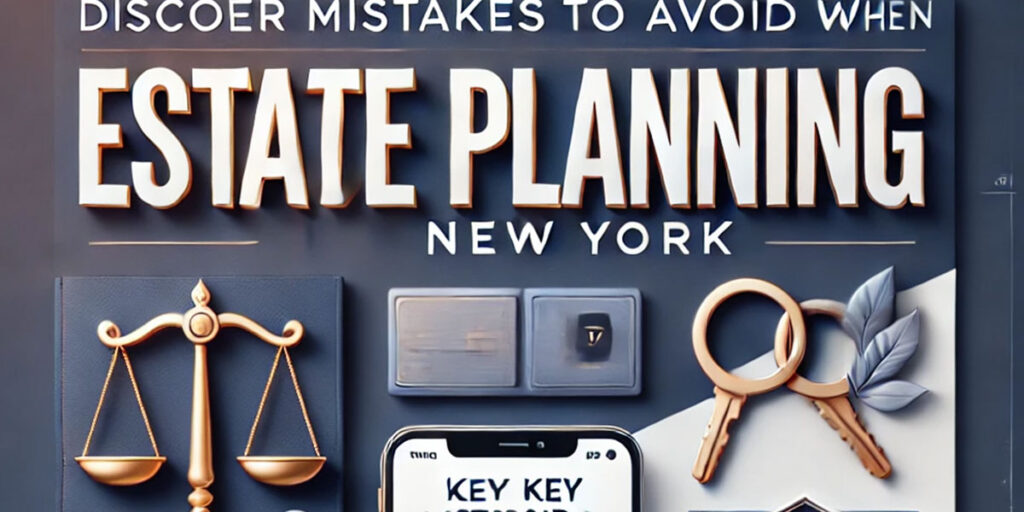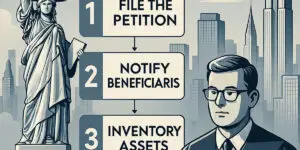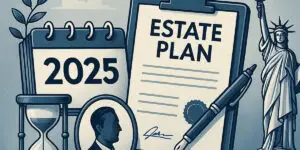Essential Tips to Avoid Mistakes When Estate Planning in New York
Introduction
Estate planning is vital in securing your legacy and ensuring your loved ones are cared for after your passing. However, many individuals unknowingly make critical mistakes that can jeopardize their estate’s effectiveness. At Morgan Legal Group in New York City, we aim to provide clarity and guidance to help you avoid these pitfalls.
Common Estate Planning Mistakes and How to Avoid Them
Mistakes in estate planning can lead to unnecessary legal challenges, delays, and financial losses. Understanding these common errors is the first step to ensuring a solid estate plan.
1. Failing to Create an Estate Plan
Many people delay estate planning, assuming it’s only for the wealthy or elderly. This misconception can leave your loved ones without clear instructions, leading to disputes and probate delays.
Solution: Start your estate planning early, regardless of your age or financial status. A well-crafted plan ensures your assets are distributed according to your wishes.
2. Not Updating Your Estate Plan
Life events such as marriage, divorce, the birth of a child, or acquiring new assets can render an estate plan outdated. Failing to update it may lead to unintended consequences.
Solution: Review your estate plan every three to five years or after major life events to ensure it reflects your current circumstances and intentions.
3. Ignoring Tax Implications
Estate taxes can significantly reduce the value of an estate if it is not planned properly. Many individuals overlook tax strategies that could minimize this burden.
Solution: Consult an experienced attorney to understand New York’s estate tax laws. Tools such as trusts can help mitigate tax liabilities.
4. Overlooking Healthcare Directives
Without clear healthcare directives, your loved ones may face difficult decisions about their medical care. This can lead to unnecessary stress and conflicts.
Solution: Include a healthcare proxy and living will in your estate plan. These documents outline your medical preferences and designate a trusted individual to decide.
5. Naming the Wrong Executor
Choosing an executor is a critical decision. Selecting someone unprepared or overwhelmed by the responsibilities can cause delays and complications.
Solution: Choose an executor who is trustworthy, organized, and capable of handling legal and financial matters. An experienced attorney can guide you in making this decision.
Key Components of a Comprehensive Estate Plan
A successful estate plan involves more than just drafting a will. Below are the essential elements to consider:
1. Last Will and Testament
A will specifies how your assets will be distributed and names guardians for minor children. Without a will, New York’s intestacy laws will determine asset distribution, which may not align with your wishes.
2. Trusts
Trusts offer a way to manage assets, avoid probate, and protect your beneficiaries. Options include revocable living trusts, irrevocable trusts, and special needs trusts.
3. Power of Attorney
A durable power of attorney allows a designated person to manage your financial affairs if you become incapacitated. This ensures continuity in managing your assets and paying bills.
4. Healthcare Proxy
A healthcare proxy designates someone to make medical decisions on your behalf if you’re unable to communicate your wishes.
5. Beneficiary Designations
Regularly review and update beneficiary designations on life insurance policies, retirement accounts, and other financial instruments to ensure alignment with your estate plan.
How to Avoid Probate Challenges in New York
Probate can be a lengthy and costly process, especially in New York. Proper estate planning can help minimize or avoid these challenges.
1. Use Trusts to Bypass Probate
Assets placed in a trust are not subject to probate, allowing for quicker and more private distribution to beneficiaries.
2. Title Assets Correctly
Jointly owned assets with rights of survivorship pass directly to the co-owner, avoiding probate.
3. Designate Payable-on-Death (POD) Beneficiaries
Designating POD beneficiaries for bank accounts and investments ensures these assets transfer directly to the named individual without going through probate.
Why Work with an Estate Planning Attorney?
Estate planning involves complex legal and financial considerations. Working with an experienced attorney ensures your plan is legally sound and tailored to your unique needs.
1. Customized Solutions
An attorney can provide strategies specific to your family dynamics, financial situation, and future goals.
2. Legal Expertise
Estate laws in New York are intricate and subject to change. A knowledgeable attorney stays updated on these laws to ensure compliance.
3. Peace of Mind
Knowing your estate plan is thorough and legally enforceable provides peace of mind for you and your loved ones.
Conclusion
Avoiding mistakes in estate planning is critical to ensuring your wishes are honored and your loved ones are cared for. At Morgan Legal Grouphttps://www.morganlegalny.com/, we specialize in creating comprehensive estate plans tailored to your unique circumstances. Contact us today to safeguard your legacy and secure your peace of mind.









